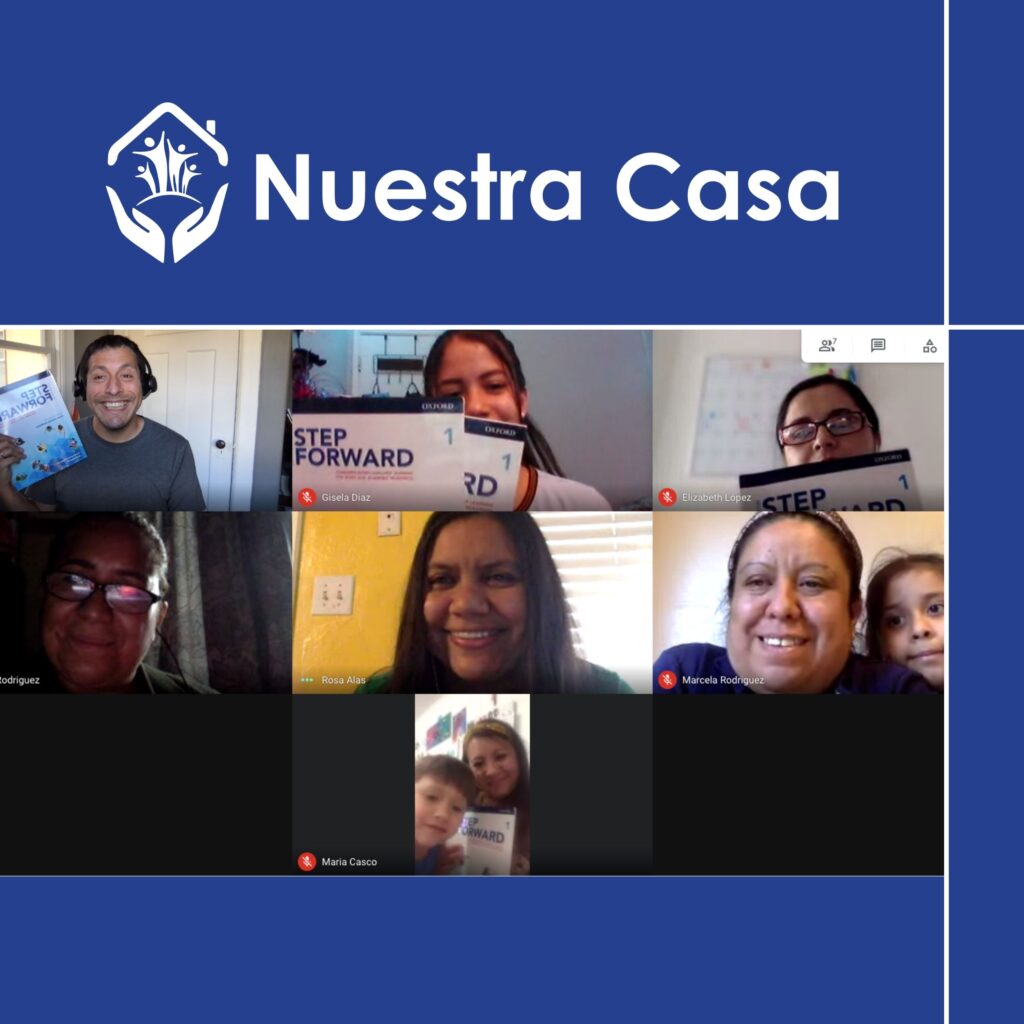
by Miriam Yupanqui
Just like everyone else on the planet, Nuestra Casa had to figure out how to deliver core programs and information in the virtual world during this pandemic. Because the work we do relies heavily on personal connections made through workshops, community-based events, and direct services, this was not an easy shift. Coupled with a lack of access to technology and broadband WIFI in the communities we serve, we and our partners were very concerned about how to continue reaching our constituents, especially the most vulnerable.
Thankfully, my team at Nuestra Casa brainstormed and did what was needed to make the switch to virtual programming. Two of our best examples are our English Language Program and our Environmental Justice Parent Academy. Our first entirely virtual class of English Language Program students graduated this month. Our maestro, Erick Casanova, took the lead on repurposing the curriculum to work in a virtual setting and found ways to make it engaging, like practicing with singalongs. In Erick’s words, “I think that the virtual aspect of the class was truly helpful. We adapted the curriculum to engage students in a way that made them feel more at ease and open to learn and be silly when needed—like when singing Disney songs or dramatically performing the book dialogues as if they were in the theater!”
I’m also grateful to staff members Julio Garcia, Roxana Franco, and Adriana Fernandez Arriaga, and our excellent facilitators and curriculum consultants who helped move our Environmental Justice Parent Academy online. Working together, they created engaging and informative content that worked well in the virtual classroom. More importantly, they could troubleshoot connectivity issues like access to laptops or mobile devices and broadband WIFI. We helped make it easier on our participants was delivering a printout of all relevant class materials every week. Ideally, we would have gone for full e-learning, but it helped most students to have a copy of the course materials in front of them if there were any hiccups with the Zoom presentation.
Our first entirely virtual class of Environmental Justice Parent Academy students graduated in April. Sixty-six parents and 18 young people completed the 12 weeks of classes. Students could compete to win one of four cash prizes at the end of the classes by presenting specific project ideas to expand environmental justice for East Palo Alto. A group of four students, a.k.a. “The “Michoacanos,” won first place. Their video project—Creating Community Gardens in Confined Spaces—demonstrates how to repurpose recycled materials to create fun and environmentally sustainable garden designs in small spaces. Read a press release about all of the projects here. To watch the full set of presentations, click here. Even more impressive is the KQED story that featured our staff members and EJ Academy graduates and facilitators. The article addresses sea-level rise, the history of flooding in East Palo Alto, and the solutions our community members advocate.
As we look toward the day when we can start to gather in person again, we’re now thinking about what elements of the virtual world we should keep. For many, the ability to connect from home is a real timesaver. For others, they crave the in-person dynamic. Should we offer a hybrid model to make it easier for some who might have difficulties attending in person? Everything is on the table as we think about next Fall.
